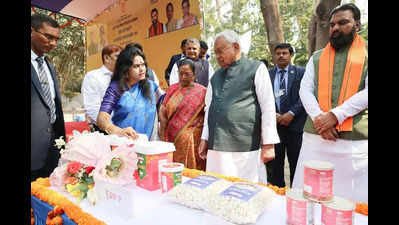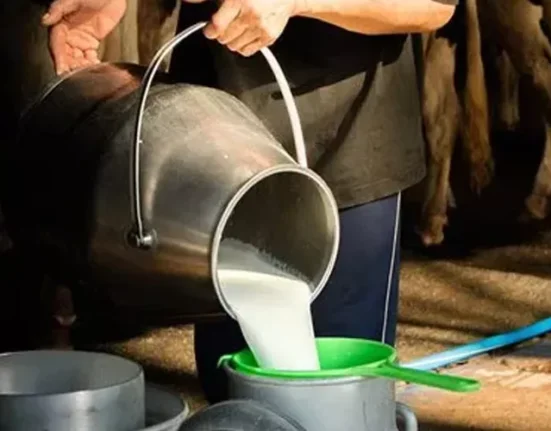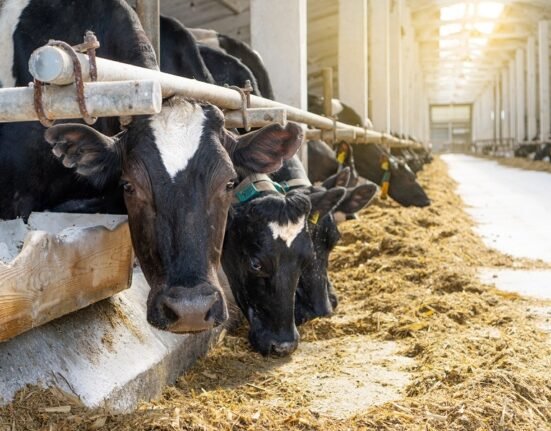A major shakeup in the Madhya Pradesh dairy sector has ignited political and cooperative backlash. The state government transferred administrative control of the Madhya Pradesh State Cooperative Dairy Federation (MPCDF) to the National Dairy Development Board (NDDB).
The move, aimed at reviving the Sanchi dairy brand, has been sharply criticised by the opposition Congress party and several local dairy unions, who argue that the decision sidelines local cooperative leadership and risks undermining the legacy of a homegrown dairy movement born under Operation Flood.
Fear of Amul’s Influence and Cooperative Disempowerment
Tensions initially escalated when the state engaged in talks with Amul, the Gujarat-based dairy giant operated by the Gujarat Cooperative Milk Marketing Federation (GCMMF). Critics feared Amul’s entry could overshadow the local Sanchi brand, particularly in milk procurement and retail dominance.
While the government eventually partnered with NDDB—a national expert body under the Union government—concerns remain. Congress state president Jitu Patwari labeled the shift a “betrayal of cooperative democracy” and demanded public transparency, asking if the move was designed to favor a “Gujarat lobby” over local milk unions.
Union Resistance and Legal Threats
Milk unions, especially from Indore, have expressed their intent to challenge the decision legally. Leaders like Tawar Singh Chouhan, the last elected representative of Indore Dairy Sangh, argue the state should strengthen Sanchi’s internal systems rather than surrender control to external institutions. “We sought NDDB’s support earlier but received no help. Instead, we built a milk powder plant using our own reserves,” said Chouhan.
Sanchi’s Struggles in a Competitive Landscape
Once a success story born out of Operation Flood, Sanchi has been underperforming due to weak marketing, low penetration, and stiff competition from national brands like Amul and Mother Dairy. While Madhya Pradesh ranks third in milk production in India, it is 11th in packet milk sales, underscoring poor market conversion.
The six divisional milk unions—Bhopal, Indore, Ujjain, Gwalior, Jabalpur, and Sagar—collectively procure around 10 lakh litres of milk daily, yet the sector captures only 1% of the total milk produced in the state.
NDDB’s Roadmap: Growth Targets & Structural Overhaul
NDDB has announced plans to scale up cooperative presence from the current 6,088 village panchayats to 9,000 within a year, and eventually cover all 23,000+ panchayats in Madhya Pradesh. It also aims to promote pasteurised packet milk as an alternative to the 90% loose milk market.
NDDB General Manager Sanjay Govani said a five-year blueprint is in place, including deploying 50–60 senior managers and preserving the Sanchi brand identity. “We are not replacing Sanchi but transforming it,” he affirmed.
Despite optimism from government officials like Animal Husbandry Minister Lakhan Patel, sceptics such as Bhopal Milk Union’s Girish Paliwal question whether NDDB can deliver on promises of sales growth and brand revival. “It’s easy to expand milk collection,” said Paliwal, “but real success lies in converting that into sales.”
What This Means for India’s Dairy Cooperative Model
This development in Madhya Pradesh presents a pivotal case study in the evolution of India’s dairy cooperative movement—balancing legacy systems, modern governance, and competitive markets. With states like Gujarat thriving through GCMMF and others like MP seeking reinvention through NDDB, the outcomes may influence future cooperative strategies nationwide.







